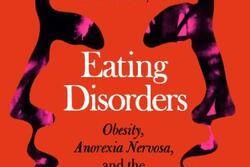Size Matters
"Bridesmaid 6," courtesy of Outreachr.com, Flicker.
“We only carry sizes 1, 3 and 5. You could try Sears.”
We’ve all heard the saying, “it’s funny because it’s true,” and that certainly applies to this iconic quote from the movie Mean Girls. Even though the average woman in the US is a size 16, many clothing stores and companies have decided that if you’re not thin, you don’t deserve fashion. Why? According to Tim Gunn in an article for The Washington Post: “I’ve spoken to many designers and merchandisers about this. The overwhelming response is, ‘I’m not interested in her.’ Why? ‘I don’t want her wearing my clothes.’ Why? ‘She won’t look the way that I want her to look.’” In other words, some in the fashion industry want to avoid dressing non-thin but completely normal bodies because they think these bodies don’t look good or “right” in their clothes. This attitude is obviously a problem.
I don’t want to add yet another piece about how the fashion industry ignores and mistreats “plus-sized” women to the canon. I don’t even really want to talk about how this issue affects the average American woman who wears a size 16. I want to talk about how this disdain for non-thin bodies is damaging, harmful, and immoral, and has led to an insidious problem that affects the life of the non-thin American woman. I want to talk about me.
I’m not thin, but my body is below the national average. I’m anywhere from a Size 6 to a Size 12 depending on the clothing brand or store. (Because women’s sizing is all over the map and a Size 6 in two different stores could mean two completely different things, but that’s another problem for another blog post.) I used to be bigger. I was significantly overweight as a child and obese as a teenager, but then lost weight in college. Even though my weight has fluctuated since then, I’ve managed to keep the bulk of that weight off for about 10 years.
Even though I’m much happier with my body today than I was in the past, my relationships with food and my own body are complex, making these issues ongoing. Plus, let’s be honest, food and eating hold significant value within Jewish religion and culture, which often makes it difficult to avoid overeating. This is not helpful when you’re someone for whom food can be a source of anxiety.
In short, I’m someone who has struggled with weight my whole life, but who has also worked really hard to be as healthy and as physically fit as possible, and to make peace with my body. So what does this have to do with clothing? And what is the “insidious” problem I referred to before? These questions can best be answered with the following story:
I’m going to be a bridesmaid in a dear friend’s wedding later this summer. I’m truly excited and honored to have been asked to take on this role, and I’m so happy for my friend and her fiancé.
Naturally, there’s a bridesmaid’s dress, and I want to talk about how it’s sized. The sizing runs XS-XL, and I purchased both Large and XL to be safe. I figured that the Large would fit but might be tight, and that the XL would probably be a bit big for me. This was not the case at all. I couldn’t even close the zipper when I tried on the Large, and the XL fit, but just barely. There I was, an empowered, strong woman, and a feminist, crying in front of a mirror because a dress labeled XL was tight on my body.
I went back and looked at the size chart again. Next to “XL,” it says, that an XL is equivalent to a US/Canada Size 8. What does this size chart tell me? It tells me that, according to this company, being a Size 8 makes me an extra-large person. It tells me, a woman who’s well below the national average in size, that the biggest size available just might fit me, if I’m lucky. It tells me that being a bridesmaid means looking a certain way.
Herein lies the insidious problem. This company, instead of just listing the numbers and being transparent about the fact that they only carry this dress up to a Size 8, makes it seem like they carry larger sizes by using the XS-XL labels. They are gas-lighting non-thin women by denying the reality of their inventory decisions. They don’t think non-thin women should fit into their dresses but they don’t want to be called out for having that opinion. The result? Perfectly normal women like me feel fat and inadequate because they have to buy a dress that’s definitely not an XL, but that’s labeled as such. I want to be absolutely clear. This misrepresentation is intentional, it is dishonest, and it is harmful.
I personally believe that companies should carry clothes that fit all body types, but if they’re not going to do that, the least these companies can do is just be honest in their sizing policies. If you only carry a dress up to a size 8, then just say that, and be prepared to deal with the consequences that come with that exclusionary choice. Don’t imply, through dishonest size labels, that women who can’t fit into your dresses are somehow overweight or unhealthy.
I’m empowered. I’m a feminist. I know I live in a society that values thinness and hates fat. I know that the size label on that dress is total bullshit. But you know what? I still cried in front of the mirror. This stuff gets into your head and takes hold, and it’s not just this one instance; things like this happen to me and other women like me (which is most women) every single day. This is part of the reason why brides feel like they have to starve themselves before their wedding (The bridal industry is especially notorious when it comes to this phenomenon.) This is part of the reason why eating disorders are so prevalent in our society. Because, telling us that we're too big to have something as simple as well-fitting clothing essentially tells us that our bodies are too inconvenient to accommodate and that we must change them.
These practices are cruel and damaging, and I hope to one day live in a world that doesn’t accept them. Let’s start by taking a closer, more critical look at our labels, and by refusing to support companies that engage in these harmful practices. The fictitious “1, 3, 5” in Mean Girls is terrible, but at least they’re totally honest about what they do and don’t carry.
And you know what? If you don’t want to carry my size that’s fine. I will try Sears, but I am still going to hold you accountable.








Thank you for writing this. As a femme person who grew up in a protestant and jewish household I had a similar experience and often times when I was obese I was shamed for it as if it was a personal failing. I've recently lost weight and kept it off for the first time and the world treats me so differently. The world has been conditioned to hate non-thin femme and masculine people and equate us with disgust and slovenly behavior. We deserve to exist in public.
I have an issue with the length of pants. The average woman is 5 feet 4 inches. I am 5 feet 5 inches. I often find pants to be made for a person at least 5 feet 8. I don't understand this. So I have to get a 10 petite so I don't have to take it to get hemmed.
Please consider the feminist implications of referring to normal as being non-fat. There are fat Jewish women who, like myself, are not only included in the misogyny and humilitation of fat shaming, but who bear the brunt of this.
In reply to Please consider the feminist by Emily R.
Hi Emily,
Thank you so much for reminding us to be mindful about the vocabulary we use to when talking about people's bodies and for sharing your experience with us! As a note, the author doesn't use the term "non-fat" in the piece. She does use "non-thin." Is that phrasing reading as problematic to you? If so, please let me know! We want to use only compassion when talking about women's lived experiences and their bodies, so any feedback you have is very appreciated!
Thank you,
Bella
We can't refuse to support such companies if we don't their names. Please share the name of this company with your readers.
In reply to We can't refuse to support by Judy
Hi Judy! I manage Jewish Women, Amplified (our blog).Thank you for this suggestion. Your activist spirit is right on the money, we definitely need to name these companies in order to hold them accountable and normally we would have shared the company name with our readers.
The author decided to not name the company out of respect for her friend's upcoming wedding. When you encounter sexist sizing, I would love for you to share the companies' names with us. We can start holding them accountable collectively!
Have always been curious, that they clearly aren't very interested in an obviously underserved market with a huge amount of disposable income. At a size 16, I'd be thrilled to find a designer with good quality clothing that fit well and flattered me. Silly, I know.
This could start with conscientious brides-to-be choosing bridesmaids dresses that come in more realistic sizes. Let's spread the word to our friends and daughters. .